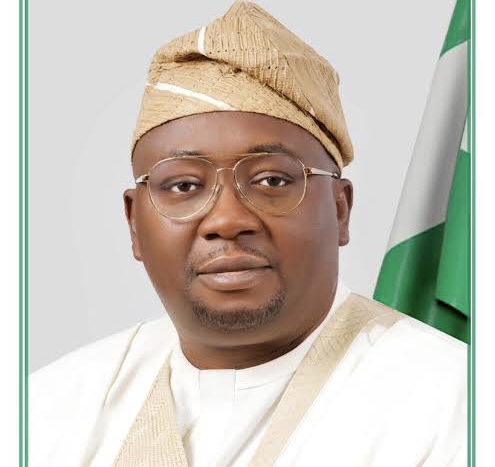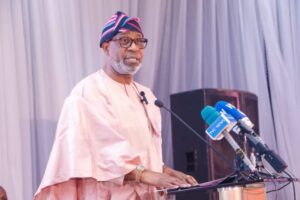
Power sector sees N700bn revenue boost
…As tariff reforms drive historic growth
By Seun Ibiyemi
The Minister of Power, Mr Adebayo Adelabu, has revealed that Nigeria’s power sector recorded an additional N700 billion in revenue in 2024, marking a striking 70 per cent increase compared to 2023.
Speaking on Thursday at the 6th Edition of the 2025 Ministerial Press Briefing Series in Abuja, Adelabu attributed the surge to recent tariff reforms aimed at restructuring the electricity market.
“It is clear that, owing to our reformative changes in tariffs, the electricity sector generated an extra N700 billion in revenue in 2024. A total of N1.7 trillion was collected in 2024, up from one trillion naira in 2023,” he stated.
He linked the revenue spike to the adoption of a cost-reflective tariff system for Band A customers. According to the minister, this leap in earnings is unmatched in the sector’s history, noting that the most significant increase previously achieved was 20 per cent.
“This change has also had a meaningful effect on the government’s financial burden, reducing the subsidised tariff shortfall by 35 per cent, from N3 trillion to N1.9 trillion,” Adelabu added.
He stressed that the revenue improvement is evidence that economic sustainability and enhanced service delivery can go hand-in-hand.
Highlighting the administration’s broader commitment to energy access, Adelabu pointed to Nigeria’s endorsement of the Nigerian Energy Compact, signed in Tanzania this January. The initiative, spearheaded by the World Bank and the African Development Bank (AfDB), aligns with President Bola Tinubu’s goal to ramp up energy generation across the country.
“The M300 target aims to deliver energy access to an additional 300 million Africans by 2030, out of the current 600 million who are without it,” he explained.
Adelabu outlined the strategy underpinning this effort, which includes five core pillars: increasing energy generation, reinforcing utility services, encouraging private sector investment, advancing renewable energy projects, and strengthening regional cooperation.
“The compact sets bold objectives for improving electricity access, scaling up the use of renewable energy, and expanding clean cooking options for millions of Nigerians,” he said.
In line with its statutory duties under the Electricity Act 2023, the Federal Government has also developed the National Integrated Electricity Policy (NIEP), he said.
According to Adelabu, the NIEP outlines a comprehensive plan for building a reliable, economically sound, and environmentally sustainable power sector.
The minister confirmed that the policy, already presented to President Tinubu, has been forwarded to the Federal Executive Council for formal approval.
“This policy serves as a guiding framework for all participants in the power sector, from investors and operators to regulators and the supervising ministry. Its goal is to drive transformation through a methodical, data-informed approach,” he said.




